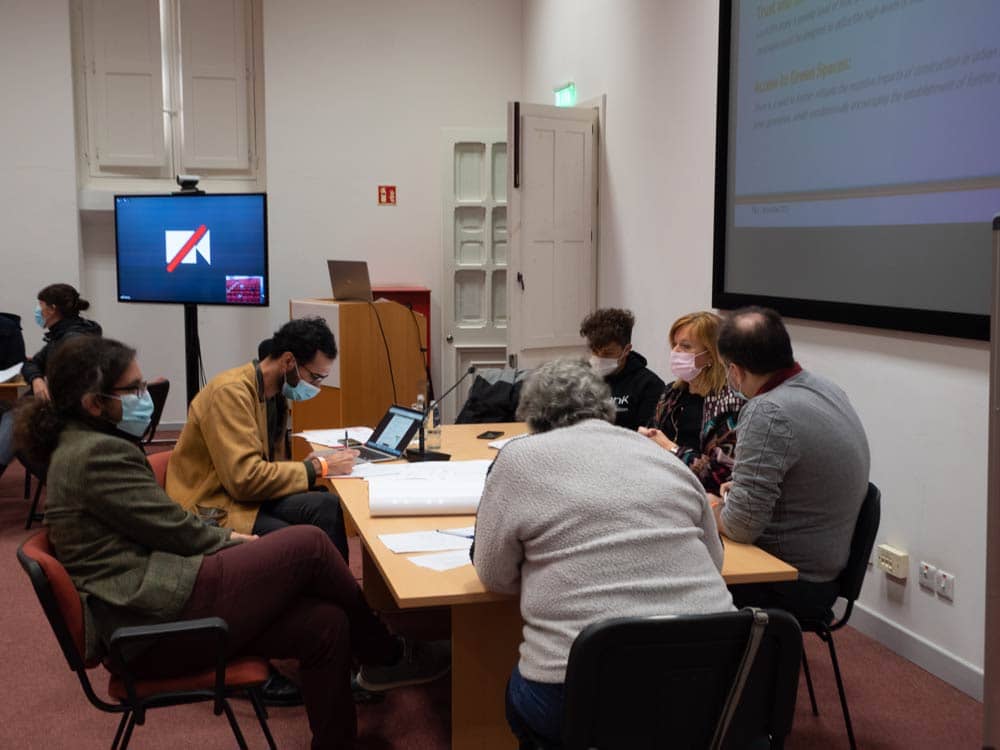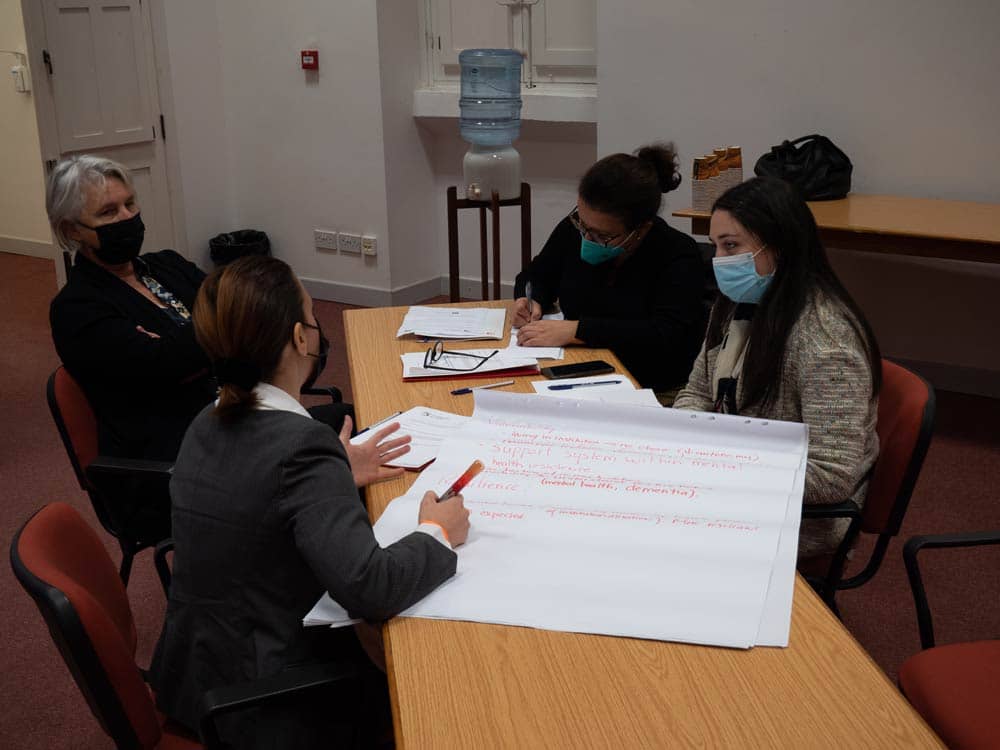Protecting the vulnerable was one of the main objectives when nations developed a COVID-19 response strategy. But while vulnerability usually implies those with weakened immune systems, it does not take into account other types of vulnerability such as financial, social, or mental.
Vulnerability. Are We Part of the Group?
The concept of vulnerability is hard to define. We usually tend to associate this concept with chronic illness, disability, the elderly, and victims of domestic abuse. Yet the pandemic has shown us that there are other parts of society that are vulnerable, including those with precarious employment or struggling with mental health. Should our definition of vulnerability be expanded to include these groups?
The SoNAR Project (a Horizon 2020 Project) tries to answer this question by considering the direct experience of several people from different backgrounds. By collecting peoples’ experiences, the project aims to help plan future policies. This project results from an international effort. The University of Malta (UM) is involved alongside France, Germany, Italy, and Slovenia, working on a vulnerability assessment tool used to identify vulnerable groups in the pandemic. Prof. Jean-Paul Baldacchino (Head of Anthropological Sciences, UM) led the local team, including Dr Maurice Said (Research Support Officer, Anthropological Sciences, UM), Dr Gisella Orsini (Lecturer of Anthropological Sciences, UM), Dr Victoria Sultana (visiting lecturer at the Faculty of Health Sciences, UM), as well as Mr Adrian Camilleri and Mr Gabriel Zammit as Research Support Officers.
‘The SoNAR project wants to understand how COVID-19 affected known vulnerable populations,’ explains Dr Maurice Said, one of the researchers involved in the project. The first goal was to identify new forms of vulnerability, classifying situations that we usually don’t associate with vulnerability. One of the study’s participants, for example, was a pilot. Despite having a high income, losing his job during the pandemic led to slimmer job prospects due to the imposed restrictions. Being unable to access any type of welfare or financial support due to his previous income, he was left with no job and no sense of future. His experience is just one of many and highlights just how vulnerable certain groups can be.
Local Vulnerabilities
Researchers discovered both country-specific vulnerabilities as well as universal vulnerabilities. Across all of the five countries involved, the project identified that (1) pre-existing vulnerabilities (poverty, chronic illness, social isolation) were exacerbated during the pandemic; (2) there was a loss of income and future opportunities; (3) the experienced restrictions were felt differently by age; (4) stigmatisation and discrimination increased, particularly against traditionally marginalised groups; and (5) there was a general loss of trust and increase in mistrust in official organisations, national governments, and certain healthcare providers.
Locally, interviewees highlighted heavy stigmatisation around mental health and against non-Maltese citizens as some of the main vulnerabilities in the Maltese population. Despite an impoverishment of mental health in general, coupled with the difficulties in lockdowns, people were still reluctant to speak about their mental health issues. This could be attributed to the stigma surrounding mental health. Since lockdowns were used as a primary containing method during the pandemic, however, we would reasonably expect to encounter this problem across the globe.
Yet Said explained that this is a specific issue in Malta due to its small size. A smaller country implies more intimate social networks, so information circulates a lot quicker. People also don’t have the possibility to move if they want to distance themselves from the situation. ‘So, if you felt mentally impacted during the pandemic and talked with somebody about it, it’s very hard to be free of the stigma. It feels that you have in fact done something wrong and that you should feel ashamed,’ Said explains.
Access to mental health departments is not equally available across different segments of the population. Combining a lack of digital literacy with the lockdown, many elderly felt isolated and disoriented since they could only speak with their family and have consultations through Zoom or Skype, tools that many didn’t even know how to access.
The perception of a pre-existing prejudice towards non-Maltese citizens was also clear, by both non-Maltese and Maltese. This had a direct impact on the former group, preventing them from forming much needed support communities. They also found it extremely hard to navigate and access the Maltese health system. While most people depend on public institutions, Maltese residents still have access to a private system. Non-maltese are at a disadvantage in terms of accessing health benefits, health care, and basic benefits. The same applies to unemployment.
Prof. Baldacchino, the lead investigator, noted how they also identified a new type of moral vulnerability. It consists of high levels of anxiety provoked by moral conflicts caused by the measures taken to mitigate the physical harm of the pandemic. This includes, for example, the conflict between the wishes of elderly relatives to visit and see their grandchildren and the fear that the children’s parents have of exposing the grandparents to potential risk of infection. ‘On the one hand, the parents do not want to deprive the grandparents from access to their grandchildren. The parents want to respect their right to choose their priorities, but on the other hand, the potential guilt and responsibility for exposing the grandparents to risk becomes morally unbearable,’ notes Baldacchino. People want to support the elderly or their vulnerable relatives. But on the other hand, people also have a responsibility to safeguard the vulnerable. Said explains how ‘we [the team] had an interviewee that gave birth during the pandemic, and her father went to visit her at the hospital. He ended up infecting her grandmother, who unfortunately passed away. So, it’s a mix of guilt and joy. Joy for the birth of a new baby and guilt for another member of the family getting infected and passing away.’
The project is currently at the final stage, which consists of talking with several professionals who work in the field, traditionally with more vulnerable groups (psychologists, physical therapists, care homes, mental institutions, social workers, and others). They are trying to see how these professionals can improve their work and the quality of life for the people they work with. The team is also investigating the issues these professionals encountered while working through Covid and its restrictions, with the aim of improving local policies.
The next step of the project is to recommend policies based on their results. Stay tuned for information in our next article in the October Edition of THINK!


The SoNAR Project has received funding from the European Union’s Horizon 2020 Research and Innovation Programme under grant agreement number 825671.





Comments are closed for this article!